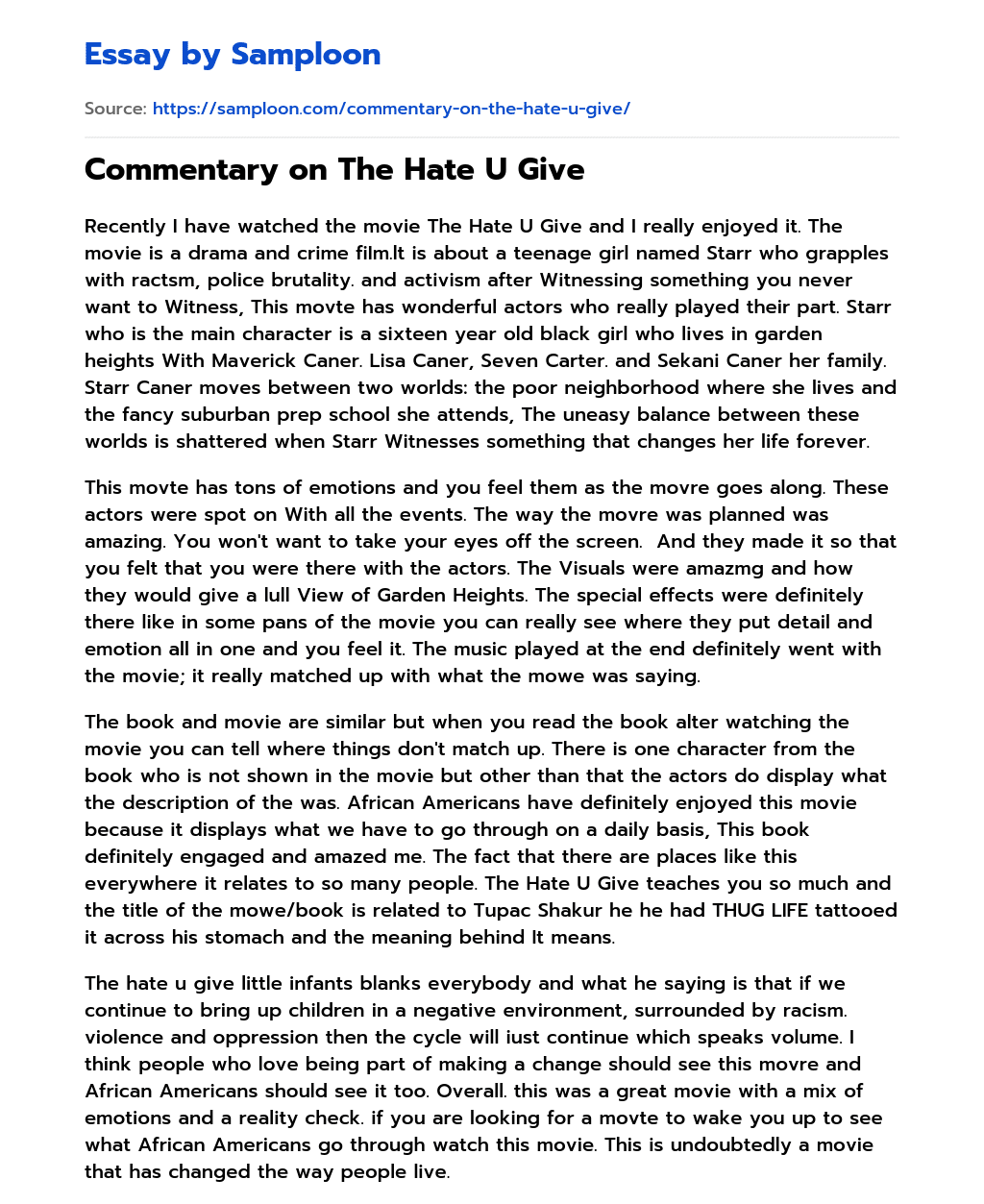Have you ever stopped to consider how much impact a single letter can have on our language, our thoughts, and our perceptions? The letter "S," while seemingly innocuous, can evoke strong feelings of frustration and annoyance for some individuals. This essay delves into the reasons behind the sentiment of "I hate the letter S," exploring its implications and consequences in our daily lives.
From its frequent appearance in the English language to its phonetic characteristics, the letter "S" holds a unique place in our communication. While some may find it essential and versatile, others may experience a sense of irritation when confronted with its presence. This essay aims to uncover the underlying reasons for this sentiment and how it can manifest in various aspects of life, language, and even psychology.
In a world where language is a primary means of interaction, the letters we use can significantly influence our feelings and thoughts. This essay will explore the multifaceted relationship individuals have with the letter "S," examining its linguistic role, cultural significance, and emotional impact. By the end, we hope to provide a comprehensive understanding of why some may harbor a dislike for this particular letter.
Table of Contents
- The Linguistic Role of the Letter S
- Cultural Significance of S
- Psychological Impact of Dislike for S
- S in Communication
- S in Literature
- S in Art
- Overcoming Dislike for S
- Conclusion
The Linguistic Role of the Letter S
The letter "S" plays a crucial role in the English language, serving multiple functions that can be both beneficial and burdensome. Here are some key points regarding its linguistic role:
- Pluralization: The letter "S" is often used to form plurals, adding complexity to our language.
- Possession: It signifies possession, as in the case of "John's" or "the cat's."
- Verb Conjugation: It is also crucial in verb forms, especially in the third person singular (e.g., "he runs").
While these functions are essential for conveying meaning, they can also create confusion and frustration, especially for language learners.
Cultural Significance of S
The letter "S" holds cultural significance beyond its linguistic role. It appears in many important words and concepts, such as "success," "strength," and "society." However, it can also represent negative connotations, such as "stress," "suffering," and "struggle." The dual nature of the letter "S" in cultural contexts can contribute to mixed feelings about it. For example:
- Positive Associations: Many positive traits begin with "S," leading to admiration (e.g., "safety," "serenity").
- Negative Associations: Conversely, words like "sorrow" and "shame" can evoke discomfort.
Psychological Impact of Dislike for S
For some individuals, the dislike for the letter "S" may stem from psychological factors. Here are a few possible explanations:
- Auditory Processing: The sound of "S" can be perceived as hissing or harsh, leading to discomfort.
- Personal Experiences: Negative experiences associated with words starting with "S" can create aversion.
- Language Anxiety: Language learners may feel overwhelmed by the various uses of "S," leading to frustration.
S in Communication
In communication, the letter "S" can alter meanings and create misunderstandings. Consider the following:
- Homophones: Words like "see" and "sea" can confuse listeners.
- Ambiguity: The use of "S" can sometimes lead to ambiguous statements, adding complexity to conversations.
S in Literature
The letter "S" appears frequently in literature, influencing both style and tone. Writers may use it strategically to evoke certain emotions or themes. Consider the following:
- Symbolism: The letter "S" can symbolize concepts like secrecy or sin in literary works.
- Alliteration: Authors often employ alliteration with "S" for stylistic effect.
S in Art
In visual art, the letter "S" can play a role in branding and titles. Artists may choose to incorporate it in ways that reflect their identity or message. Key points to consider include:
- Branding: Many artists use "S" in their names or titles to create a distinct identity.
- Symbolism: The letter can symbolize various themes, such as struggle or success.
Overcoming Dislike for S
While it may be challenging to appreciate the letter "S," there are ways to overcome dislike:
- Mindfulness: Practicing mindfulness can help individuals manage negative feelings.
- Language Learning: Embracing the letter's role in language can foster appreciation.
Conclusion
In conclusion, the letter "S" evokes a spectrum of emotions and reactions that can vary greatly among individuals. While it plays a vital role in language and culture, its presence can also induce frustration and discomfort. Understanding the reasons behind the sentiment of "I hate the letter S" can lead to greater appreciation for its complexities and nuances.
We invite you to share your thoughts on this topic. Do you have a particular dislike for any letters? How do you feel about the letter "S"? Leave a comment below, and don't forget to share this article with others who may find it interesting!
Thank you for reading, and we hope to see you back for more engaging content!
DGMNews.com: Your Ultimate Source For News And Insights
My Locker Ausd: A Comprehensive Guide To Secure Your Belongings
Base Mart: Your One-Stop Shop For Quality Products And Services


